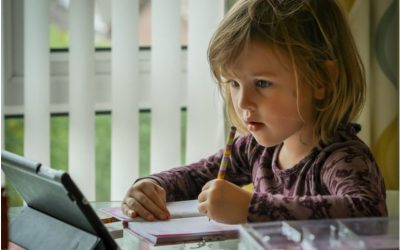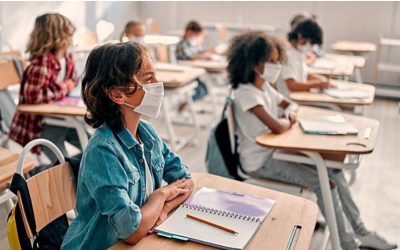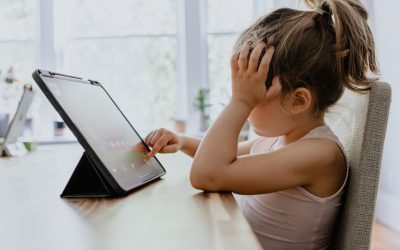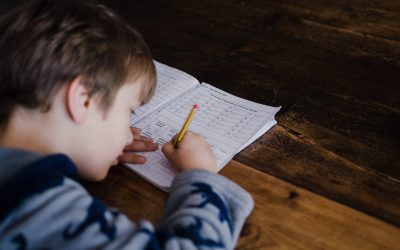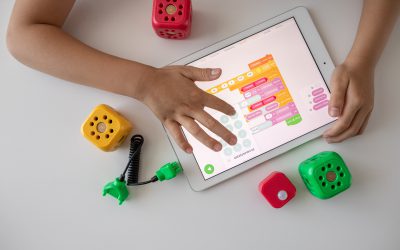Stress in times of COVID-19
17 Apr 2020 | Parents
The fairly sudden outbreak of COVID-19 in the Netherlands, and the rapid successive measures taken by the government, can lead to stress and anxiety among parents and teachers, as well as children. The daily routine has changed considerably and the end of this situation is not yet in sight. Parents often struggle with combining their own work from home, and assisting their own children in home schooling. There may be concerns about the health of grandma and grandpa, or financial concerns. For teachers, all of the above concerns may also be present, in addition to their struggle with filling in a new online way of teaching, concerns about “lost” students and students who are suffering from poor home conditions or for whom it is even unsafe at home.
Anja Huizink, full professor of Clinical Developmental Psychology, founder and director of www.hetstresslab.nl
17-04-2020

What makes a situation stressful?
Many of the above situations can be classified under the heading of a “stressor”. A stressor is a situation that can lead to stress. We know from research that certain aspects of such a stressor are especially important to determine whether or not it leads to feelings of perceived stress or physical reactions to stress. One important aspect is whether a stressor leads to a challenge (which in principle can also be positive) and whether the situation is perceived as threatening. The challenge of organizing everything suddenly from home can therefore in itself lead to a stress reaction, and the threat of a possible infection with the corona virus (in yourself, your family, or a loved one) can also be experienced as stressful. In addition, the degree to which the situation is overwhelming, uncontrollable and unpredictable also plays an important role in the extent to which the situation is experienced as stressful. Finally, how much you are emotionally involved in the situation is also relevant.
All these aspects can play a role for parents and teachers who try to deal with the current COVID-19 situation, but may also affect children. In children, on average, you can assume that younger children (up to the age of 10) are mainly concerned with the “here and now” and how their situation has changed and what they are currently experiencing as unpleasant. Older children may also be more concerned about the future. Importantly, children also notice how tense their parents are.
In short: the situation in which we find ourselves now and which we have to adapt to for an as yet unknown time, has several characteristics that can lead to stress. However, not everyone will experience the same amount of stress.
What makes someone more or less stressed?
Whether a situation is actually experienced as stressful depends on how someone appraises and assesses the situation. If, despite the negative aspects of the situation, there are still positive elements that can be recognized (more time for each other, for example), and one is confident that the outcome will turn out to be less threatening and overwhelming, this can lead to less stress. A person’s self-confidence in dealing with changes and a personality that puts things in perspective can also help. Social support is often seen as important in reducing a stress response. It is precisely this social support that is now being interpreted and experienced in a completely different way, but these new ways of supporting each other can certainly help with stress reduction.
Does stress affect the learning process?
Can stress also affect the learning process? In general, acute stress, which passes quickly, can lead to a better focus of attention. In this corona situation, however, there is chronic stress, which can lead to less concentration and problems with memory, including storing new knowledge in the brain and reproducing teaching materials. It can also lead to worrying (slightly more in older children) or physical complaints (abdominal pain, headache) which in turn distracts a child from school tasks. Emotional expressions of stress, such as being easily agitated, showing impulsive behavior, or some anxious behavior can also occur in children. Therefore, supporting their child during school work at home requires a little more patience from the parents, while they themselves can also suffer from these stress symptoms.
How do you reduce stress in yourself and your children?
It is therefore important to see how you can reduce stress. We cannot easily remove the causes of this potential stressful COVID-19 situation. Yet, it is good to take time on a
daily basis to relax, and find a way of relaxation that best suits yourself, your child, or your family. Don’t worry about the situation for a while, but enjoy what is still possible, and “turn off” the stress system. For some it helps to exercise, to have fun with each other (e.g. with a game or a nice or funny movie), to find distraction in music, a book, to work in the garden, or to meditate. Taking time for this relaxation every day will make you feel less tense and suffer less from chronic stress. Stepping out of the situation for a moment, with distraction and relaxation, can ensure that afterwards you can look at the situation with more perspective and acceptance. It also ensures that parents can deal with their children in a more relaxed way. For children, playing outside is certainly a very good outlet, because they literally and figuratively step out of the home situation for a while.
Tips for parents and teachers
Take care of yourself, as a parent and as a teacher, and don’t forget to relax especially now. It is important that you allow yourself enough rest to recharge for yet another day of work and home education. Let children enjoy the here and now and don’t worry too much, because that’s exactly what they notice. Be aware of any stress signals from your child and think together about how you can reduce this on a daily basis. Finally: most children are resilient and flexible, they adapt quickly. That realization can also take away your own concerns for just a bit.
See also information for:
Most recent blogs:
How LEARN! supports primary and secondary schools in mapping social-emotional functioning and well-being for the school scan of the National Education Program
Jun 28, 2021
Extra support, catch-up programmes, learning delays, these have now become common terms in...
Conference ‘Increasing educational opportunities in the wake of Covid-19’
Jun 21, 2021
Covid-19 has an enormous impact on education. This has led to an increased interest in how recent...
Educational opportunities in the wake of COVID-19: webinars now available on Youtube
Jun 17, 2021
On the 9th of June LEARN! and Educationlab organized an online conference about...
Homeschooling during the COVID-19 pandemic: Parental experiences, risk and resilience
Apr 1, 2021
Lockdown measures and school closures due to the COVID-19 pandemic meant that families with...
Catch-up and support programmes in primary and secondary education
Mar 1, 2021
The Ministry of Education, Culture and Science (OCW) provides funding in three application rounds...
Home education with adaptive practice software: gains instead of losses?
Jan 26, 2021
As schools all over Europe remain shuttered for the second time this winter because of the Covid...

